

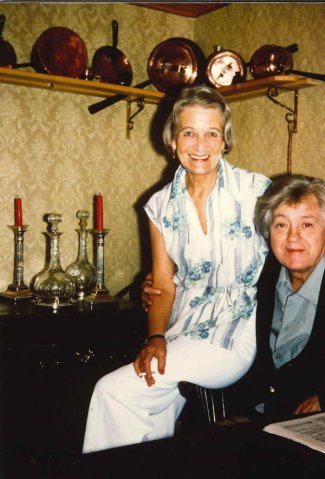
By 1972, with Nancy's care, George had recovered his health. They sold the market garden and moved from Dorset to Glentworth Street, near Regent's Park in London. George took up the violin once again, and wrote several pieces for violin and piano. He began knocking on doors to try and re-establish himself in the musical world, but as he said 'no-one wanted to know me', until, following the popular response to a broadcast of his Eighth Symphony, the tide turned. And so began an extraordinarily productive 20-year run of recordings, performances and commissions.
.jpg)
Following the BBC broadcast of his Eighth Symphony and the release of several recordings of symphonies and concertos with the Lyrita and Conifer labels, George established his own recording company, and became his own producer for a recording of Violin Sonata and Lament, Air and Dance with Tasmin Little and Martin Roscoe in 1990.
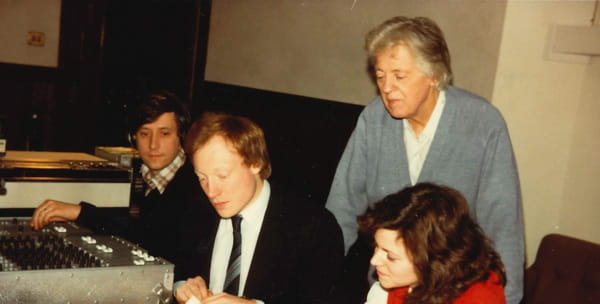
Tony Faulkner, Andrew Cornall and Kathy Stott in the control room. John Deacon launched the Conifer label with a recording of Lloyd's 4th Piano Concerto played by Kathryn Stott, with the LSO conducted by the composer. Conifer went on to record 4 of Lloyd's symphonies. John was able to bring in Andrew Cornall and Tony Faulkner as producer and engineer, considered by many to be the finest production team in Britain at that time.
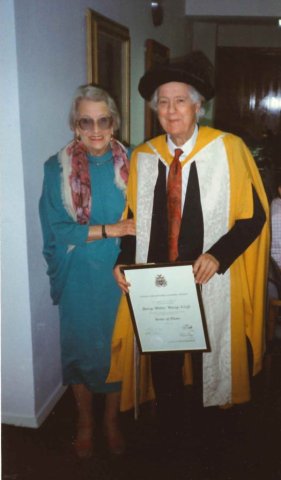
George Lloyd (Hon D. Mus) stated that he never had to pass an exam in his life, so he was surprised and delighted to be awarded an Honorary Doctorate of Music by University College, Salford. This honour was due in part to his success as a composer of test pieces for several national and international Brass Band Championships, and in particular to his recording of these works with the Black Dyke Mills Band under their conductor David King. David had recently taken up an academic position at Salford, and the Honorary Degree was greatly appreciated by George, whose music had not, until then, been acknowledged among academics.
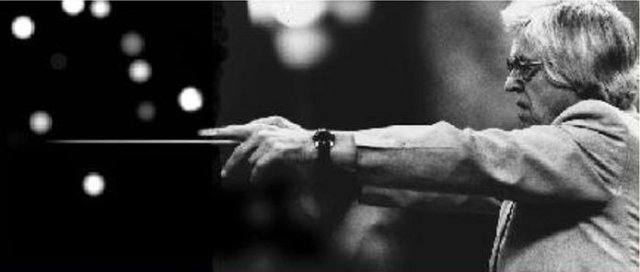
The BBC Philharmonic Orchestra became central to Lloyd's 'Indian Summer' as a conductor and recording artist, through the support of their senior producer, Peter Marchbank. In 1988, Lloyd parted from the Conifer label to set up his own recording company, Albany Records (UK), managed by his nephew William Lloyd, in association with a sister company Albany Records (US). The BBC Philharmonic, conducted by the composer in BBC Studio 7 in Manchester, recorded 7 symphonies, 3 piano concertos and two orchestral works. Before each Albany studio session, the orchestra would rehearse the new works and give a first public performance, followed by a broadcast, which combined with the new digital technology to give a warm and polished sound to the finished CD albums. These recordings and the associated broadcasts then sold in their thousands.
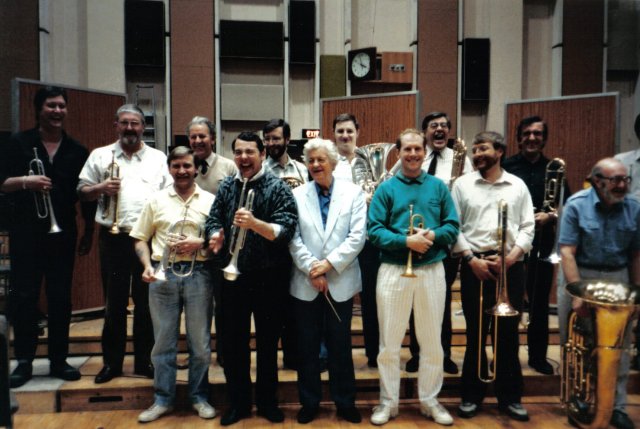
The relationship with the BBC Philharmonic Orchestra continued with the Philharmonic Brass recording of Lloyd's Symphony No 10, 'November Journeys' written for 13 brass instruments.
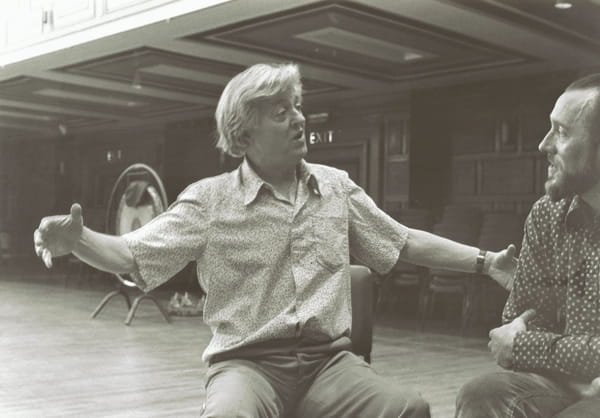
A Litany - a setting of the poem by John Donne - was recorded in Watford Town Hall with the Philharmonia Orchestra, the Guildford Choral Society, and soloists Janice Watson (soprano), and Jeremy White (baritone).
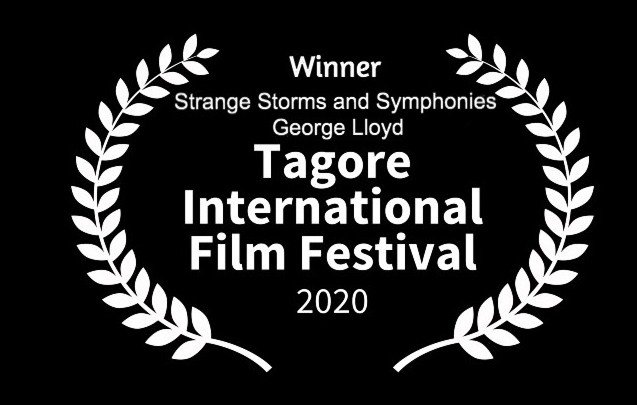
In 2013, Lloyd's centenary year, Diana Taylor of Redcliffe Films produced a 40-minute documentary on the life of George Lloyd, Strange Storms and Symphonies, which is now available on YouTube. https://www.youtube.com/watch?v=NGaYZ7K3oa8